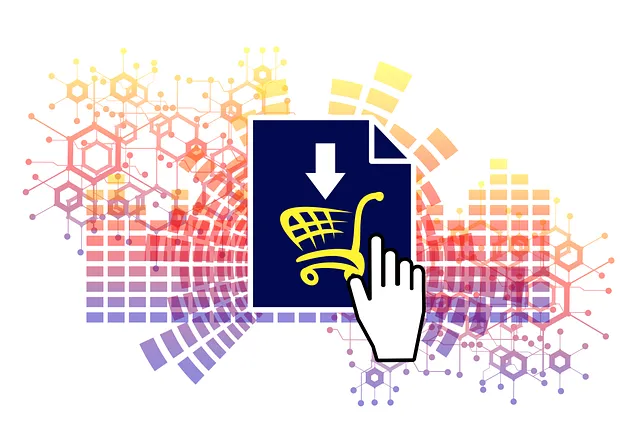To conduct secure online shopping as a homeowner or real estate investor, it's imperative to use reliable and secure marketplaces that adhere to strong security protocols. Ensure websites are legitimate by checking for 'https://' in their URLs, which indicates a secure connection. Utilize platforms with two-factor authentication for additional security. Share only the necessary personal information during transactions and use complex passwords, considering a password manager for ease. Keep your software up to date with the latest security patches, and use credit cards or payment services with purchase protection and fraud monitoring when making payments. Regularly review financial statements for any suspicious activity, promptly reporting anything amiss. Employ secure payment gateways that encrypt sensitive data during transactions, especially important in real estate deals. Always cross-reference property listings with official records, scrutinize platforms' reputations, and verify vendors' credentials. Engage in direct communication with vendors through encrypted channels to ensure a safe transaction. By following these steps, homeowners and real estate investors can enjoy the convenience of secure online shopping with confidence.
Secure online shopping has become a cornerstone for homeowners and real estate investors alike, offering a convenient yet risk-laden landscape for transactions. As the digital marketplace expands, safeguarding personal data and ensuring the authenticity of property listings are paramount. This article delves into the essentials of cybersecurity, outlines best practices for protecting sensitive information, and evaluates secure payment gateways tailored for real estate dealings. It also provides robust strategies to verify listings and assess vendor credibility, empowering you to make informed decisions confidently in the realm of online property investment.
- Understanding Cybersecurity Essentials for Safe Online Transactions
- Best Practices for Protecting Personal Information During Virtual Marketplace Engagement
- Utilizing Secure Payment Gateways and Services for Real Estate Transactions
- Strategies for Verifying Authenticity of Property Listings and Vendor Credibility Online
Understanding Cybersecurity Essentials for Safe Online Transactions

Best Practices for Protecting Personal Information During Virtual Marketplace Engagement

When engaging in secure online shopping for homeowners and real estate investors, prioritizing the protection of personal information is paramount. Utilize reputable marketplaces known for their robust security measures to minimize the risk of data breaches. Always verify the website’s authenticity by checking for ‘https://’ in the URL, which indicates a secure connection, and look for platforms that offer two-factor authentication (2FA) for an additional layer of defense. Be judicious with the personal information you disclose; provide only what is necessary for transactions.
Employ strong, unique passwords for your accounts and consider using a password manager to maintain their complexity without compromising ease of use. Regularly update your software and operating systems to ensure that security patches are applied promptly. When making payments, use credit cards or payment services that provide purchase protection and fraud monitoring. Additionally, monitor your financial statements and report any suspicious activity immediately. By adhering to these best practices for protecting personal information during virtual marketplace engagement, homeowners and real estate investors can conduct secure online shopping with greater confidence and peace of mind.
Utilizing Secure Payment Gateways and Services for Real Estate Transactions

When engaging in real estate transactions, both homeowners and real estate investors must prioritize secure online shopping practices to protect their financial interests. Utilizing secure payment gateways is paramount when conducting any form of real estate transaction over the internet. These gateways offer a robust layer of security by encrypting sensitive data, ensuring that personal and financial information remains confidential during the transfer of funds. For homeowners, whether paying mortgages or closing on a new property, reliable payment services provide peace of mind, knowing that their payments are processed through trusted intermediaries. Similarly, real estate investors, who often engage in multiple transactions, benefit from the added security these gateways offer. They facilitate seamless and safe financial operations, which is crucial when managing a multitude of investments.
The integration of secure payment technologies in online platforms dedicated to real estate ensures that both buyers and sellers can confidently execute contracts and handle escrow services. These systems not only prevent unauthorized access but also offer fraud protection measures, which are particularly important given the high-value transactions typical in real estate. For investors, the ability to conduct due diligence and make payments securely is essential for maintaining a competitive edge and managing risks effectively. By choosing reputable payment gateways that adhere to industry standards such as PCI DSS (Payment Card Industry Data Security Standard), all parties involved in real estate transactions can enjoy the convenience of online shopping while maintaining the security and integrity of their financial dealings.
Strategies for Verifying Authenticity of Property Listings and Vendor Credibility Online

When engaging in secure online shopping for homeowners and real estate investors, verifying the authenticity of property listings and the credibility of vendors is paramount. A diligent approach begins with utilizing reputable online platforms known for their rigorous vetting processes. These platforms often feature properties vetted by professionals who confirm the legitimacy of listings through documentation and on-site inspections. For homeowners, it’s advisable to cross-reference property details with official records such as the county assessor’s office or a trustworthy multiple listing service (MLS). Real estate investors should also consider the platform’s history, user reviews, and the transparency of their transaction process.
Furthermore, conducting due diligence by checking the credibility of vendors online involves a multi-faceted strategy. Begin by researching the vendor’s background, including their business registration status, past customer testimonials, and professional accreditations. Employ digital tools to scrutinize the authenticity of contact information provided. Verification of certifications and licenses through state or local authorities can offer additional reassurance. For both homeowners and investors, it’s crucial to use secure payment methods that protect personal and financial data. Establishing a direct line of communication with vendors through encrypted channels can also enhance security and trust during the transaction process.
In conclusion, homeowners and real estate investors can confidently engage in secure online shopping by adhering to cybersecurity best practices and leveraging reliable payment systems. By understanding the essentials of online transaction security, employing protective measures for personal data during marketplace interactions, utilizing trustworthy payment gateways tailored for real estate transactions, and verifying the authenticity of property listings alongside vendor credibility, individuals can navigate the digital realm with assurance. The integration of these strategies not only safeguards financial interests but also fosters a robust shopping experience within the real estate sector. With due diligence and informed practices, online shopping becomes a safe and efficient avenue for both homeowners and investors alike.
